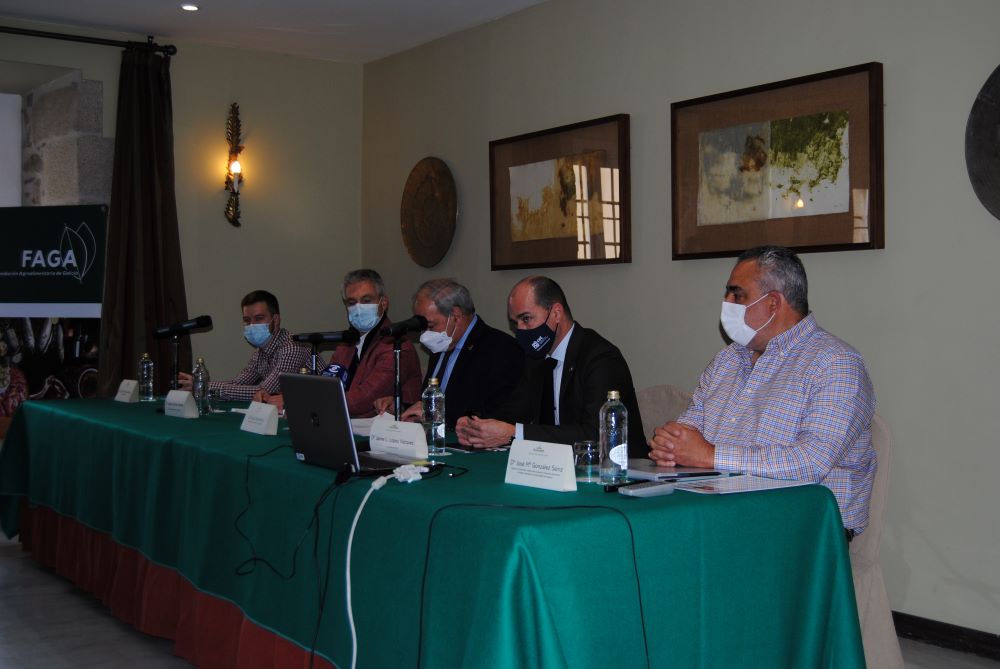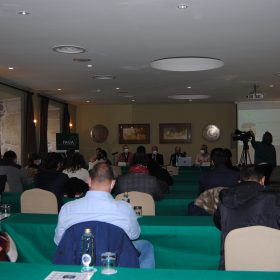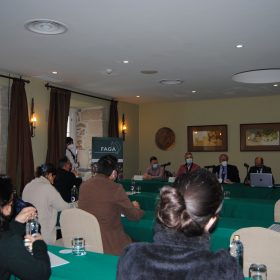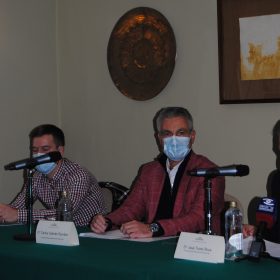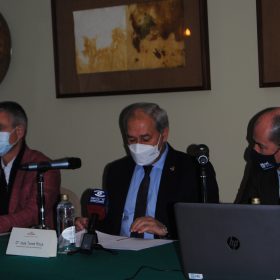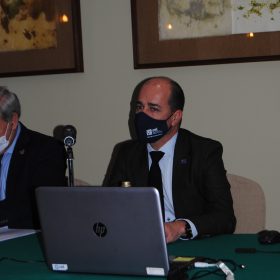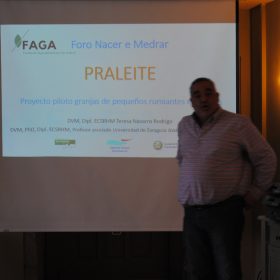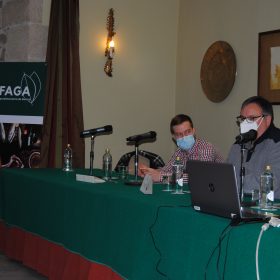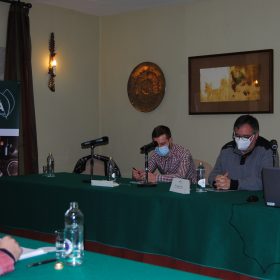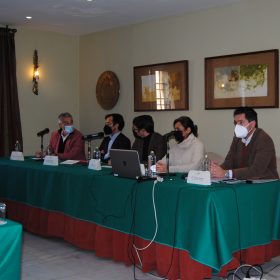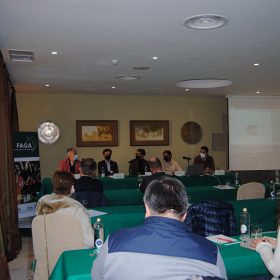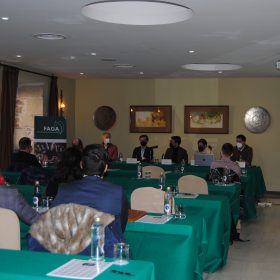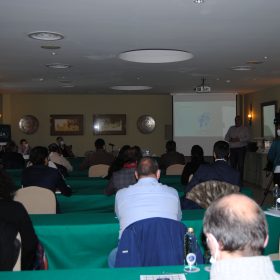The Parador de Monforte de Lemos hosted today the presentation of a pilot project for the local completion of the production cycles in Galicia through the use of meat and dairy products from sheep and goats, the Ruminants Project or “PRALEITE”.
The project was presented at the Forum “Nacer e Medrar”, organised by the Agri-Food Foundation of Galicia (FAGA) with the support of the Diputación Provincial de Lugo and the collaboration of Santander Agro to promote networking and exchange of entrepreneurial initiatives between entrepreneurs and other agents of the agri-food sector.
Jaime López, as secretary of CEL and FAGA, and José Tomé, as president of the Diputación de Lugo, were in charge of presenting the Forum. Both agreed on the need to locally complete production cycles in the Galician agri-food sector and the impact this could have on the fight against depopulation. In the words of Jaime López, “we have no choice but to look to the countryside”, and José Tomé, “we produce but we don’t process, and that’s a shame”; “we have excellent raw materials and products, but we have to work to ensure that the added value stays in Galicia”.
The veterinarians and European graduates in small ruminants, currently working at the University of Zaragoza, José Mº González Sainz and Teresa Navarro Rodríguez, were in charge of carrying out the field study in Galicia and developing the Rumiantes or PRALEITE project (Pilot project for the implementation of small ruminant farms with dairy aptitude in rural areas in the south of the province of Lugo -PRALEITE, Pequeños Rumiantes Aptitud LEITE-).
González Sainz presented “Praleite” to about twenty people, including veterinarians, members of OVICA and processing companies with interest in the production of the type of farms planned in the project. Among others, representatives from Naturleite, Suministros Megaro Foods, Entrepinares and Dayrlac were present.
Ruminants Project
The Ruminants or Praleite project arose “on the initiative of the industry itself”, according to the president of FAGA and CEO of Megaro Foods, Carlos Cebrián. “It was not born as a subsidised project, but rather it is the industries themselves that have an interest in meat and dairy production on sheep and goat farms, and this guarantees its viability”. “This interest,” he stresses, “is what has led us to look for tools such as the creation of a Foundation and the specialised study of a viable and sustainable farming model in Galicia”. At this point, in setting up FAGA and carrying out the study, “we have the support of the Lugo Provincial Council”.
The study involved visiting livestock farms throughout Galicia, and especially in the south of Lugo due to the availability of hectares, and the definition of a model for sheep and goat farming, an alternative to cattle, especially for production and milk from these animals, which at the moment practically does not exist in this Community, although meat would also be used.
In order to guarantee its future implementation, with viability and in the long term, these three aspects were studied in depth for the farm model defined in Praleite: investment and financing needs, the maximum number of animals that can be kept on each farm in order to guarantee a work-life balance and and avoid the abandonment of the new generations in these farms, research and innovation, profitability ratios and job creation, among others. The location of the first farm of this type is now being studied in order to verify the results of the study and expand the model throughout Galicia.
Producers and companies
After the presentation of the project, Luis Rivera and Miguel Viña, president and veterinarian of the Galician Association of Sheep and Goat Breeders (OVICA) respectively, and representatives of Naturleite, Entrepinares, Suministros Megaro Foods S.L., Santander Agro and the innovation consultancy Medrar also took part in the Forum.
OVICA emphasised that Praleite is an “exciting project” because “it is born with a very strong initial base, both because of the possibilities of financing and the interest of the industry and because it has perfectly studied issues related to health, animal feed and the farmers’ work-life balance”.
In all cases, the companies emphasised the great interest that exists in the production of this type of farm to start up, as in many cases they are bringing in sheep and goat milk and meat from abroad for processing. Precisely this interest from the industry, which guarantees the purchase of the entire production of this type of farm, “is a guarantee of success for the project”, according to FAGA.

 ESP
ESP GAL
GAL